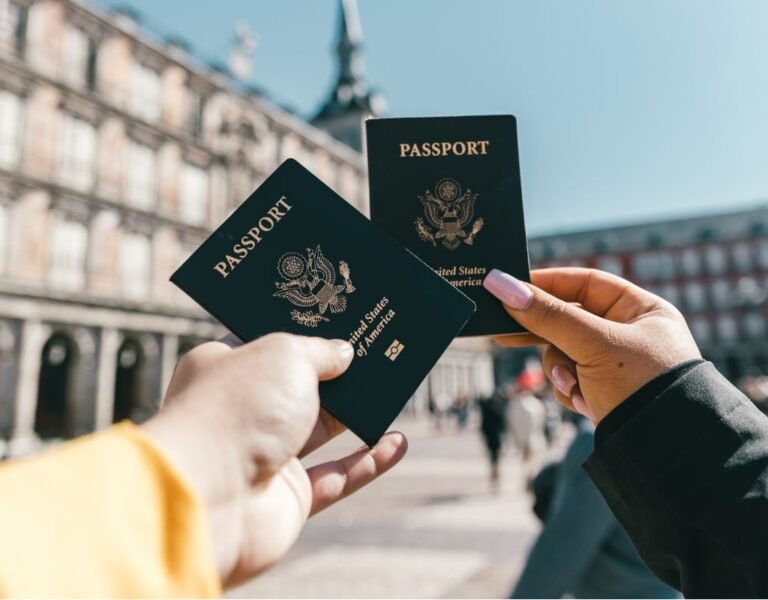International Moving Checklist – Plan Your Move Wisely
|
Relocating to another country can be an exciting adventure. Little do people know how difficult it is while preparing for it. It can also turn stressful and expensive if not properly planned. Failing to secure accommodation in advance or packing inadequately can lead to financial strain. However, there’s a solution. With some research, you can make this a smooth transition.
An international move usually takes between three to six months. Proper planning is essential to minimize last-minute hiccups. Thus we bring you a structured step-by-step guide to assist you as your moving date approaches. Taking into account that everyone is busy in this humdrum life we live, we will break down our moving list with a 3-month timeframe in mind.
Get a 3-Month Head Start

Moving can be difficult, especially if you’re a procrastinator like myself. Think of the following as best practices to abide by during the moving process. It is a safe measure to do the following in advance.
Set Your Timeline
It’s a little complex when moving with family in comparison to moving solo. When you’re moving with family or loved ones, decide on everyone’s move-in date. Considering factors like budget and schedules will help determine if it’s best to relocate together or for some to join later. Mapping out a timeline can be great, considering the time needed for approvals, such as pet relocation.
Start a Relocation Fund
Begin setting aside emergency funds for unforeseen expenses during your international move. You never know what cost might creep out of the grapevines. Keeping something saved on the side can come in handy during such times.
Review Your Tax Obligations
Moving across international borders doesn’t exempt you from your tax responsibilities. If you’re a U.S. citizen or permanent resident, you’ll have to pay taxes no matter where you live or work. The good news is there may be provisions to help reduce your tax liabilities.
For example, you might be eligible to deduct a portion of your income under the Foreign Earned Income Exclusion tax deduction. There are also tax considerations for properties you own or rent abroad. An appointment or two with your tax professional can easily address these tax obligations before heading overseas.
Insurance
If you’re purchasing a home in your new country, obtaining property insurance is essential. If you’re renting, consider rental insurance to protect your belongings in case of damage. Researching good insurance firms is a must unless you know for sure who you want to go with.
Don’t forget to think about other types of insurance, such as travel insurance and life insurance, to ensure comprehensive coverage during your international adventure.
Healthcare
Healthcare expenses can quickly add up in a new country. With thorough research and consultation with your current healthcare provider, you can get guidance based on your destination and your family’s specific healthcare needs. It’s worth exploring the option of international private medical health insurance if your employer doesn’t provide benefits.
Book necessary medical and dental checkups for yourself and your family members well in advance. Be aware of insurance enrollment deadlines and procedures.
Housing
In some cases, you might need extra time to settle into your new home overseas before your belongings arrive. To avoid complications or missing out on good deals, research potential short-term accommodation options and book them ahead of time.
If you’re moving abroad on your own, you can consider subletting your current apartment, sell it, or even cancel your apartment lease. After all, this is fully dependent on how long you plan to stay in the new location.
Visa and Passport Procedures
Start the application process for visas required by your destination country, and if necessary, renew your passport. Be sure to check the processing times for visas in your specific country. Renewing your passport early can also save you from having to expedite the application process, which can be costly.
Planning a Preliminary Visit
If your schedule and budget allow, consider scheduling flights for a pre-move visit. This visit will help you personally scout schools and potential residences. After all, with a long-term move, it’s essential to make sure you and your kids are living in a good neighborhood. You’ll even get the chance to make some new friends during this visit if you’re lucky!
Schooling For Your Kids
If you or your family members plan to attend school in your new country, it’s time to start researching educational institutions in your area. You can begin by understanding the educational requirements of the country to ensure compliance. Additionally, verify the availability of reliable internet service if online schooling is in your plans.
In-Home Survey with Mover
Schedule an in-home survey with your chosen international moving company. Reputable movers will guide you through the moving process, determine what can and cannot be moved from your current residence, and identify any items that might require special handling.
Getting Your Essential Documents In Order
Before your international move, focus on obtaining and organizing crucial documents to save time and ensure a smooth transition. Store them securely and know where to access them easily.
Here’s what you should prepare:
Personal Documents
- Passport (consider a passport card for North America).
- Birth certificate.
- Marriage certificate.
- Adoption papers.
- Divorce papers.
- Social Security cards.
- Driving license(s).
Insurance and Medical Records
- “No-Claims Bonus” (NCB) record for car insurance.
- Health records, including immunization history.
- Insurance cards (medical, dental, eye, disability).
- Prescription copies.
- Disability records.
Education Records
- School transcripts and reports (if attending school overseas).
- University papers.
- Homeschool portfolio (if applicable).
Legal Documents
- Power of attorney.
- Will and trust documents.
- Health power of attorney.
- Notarized or legal documents.
Financial Records
- Bank statements (if not accessible online).
- Income tax statements.
- Financial statements (for business owners).
- Other financial records.
Additional Travel Documents:
- Work permit (if required).
- Custom forms or other relevant travel documents.
Visa Requirement For Pets

If you have pets, it’s essential to ensure you have all the necessary paperwork ready and your pets are ready for the journey, as vet-approved. Here’s what you need to do for your pets before moving internationally:
- Check Country Requirements: Before leaving, check the rules of the new country regarding pet imports. Make sure your pet is allowed to enter that country. Some places, like Australia and New Zealand, have specific rules about certain pets like birds, ferrets, and American pit bull terriers. Some countries require vaccinations and clearance within a certain time frame before your pet can enter. Depending on the destination, your pet might even need to go through a quarantine period.
- Immunization Records: Gather all the records of your pet’s vaccinations before the move. You’ll need these records to prove your pet’s vaccination history. Make extra copies to provide to the international moving company responsible for your pet’s journey.
- Health Certificate: Your vet can provide you with an international health certificate for your pet. This certificate is important for traveling with your pet abroad.
- Choose the Right Pet Carrier: Whether your pet is flying or traveling by sea, you’ll need an appropriate pet carrier to transport them safely. Some airlines have specific requirements for pet carriers, so check with your airline well in advance. Make sure to choose a carrier that is IATA-approved to avoid any potential travel delays.
Choosing the Right International Mover

Before you embark on your big move to another country, it’s important to get help from professional international moving companies. These experts know the ins and outs of the moving process and the specific rules of the country you’re moving to because each country has its own laws.
Here’s how to find the right international mover for you:
- Compare Three or More Companies: Get quotes from at least three different international moving companies. Check what kind of packing materials they use and what services are included in their packages.
- Check Their Licenses: A reputable international mover should have no problem showing you their license. Look for companies with licenses from the Federal Maritime Commission or a FIDI license, which means they are authorized to move your belongings across seas.
- Reputation: It’s important to know who will be moving your belongings. You don’t want to hire a company that has a history of problems with the people they hire to move your stuff. Ask about their vetting process, including whether they do background checks.
- Think About Storage: If you need storage for your items, find out if the international moving companies you’re considering offer this service and what the costs are.
- Make Your Choice: After researching and comparing, choose the international mover that best suits your needs. Do this at least three months before your planned move because these companies can get booked up quickly, especially during busy times like the summer.
Important Tasks With One Month In Hand
With just one month to go before your big move, there are some essential tasks you shouldn’t forget.
- Cancel Subscriptions and Insurance: This is the time to cancel any services you won’t use in your new location. Don’t forget to cancel insurance policies that won’t apply abroad. Also, remember to cancel your cable service to avoid being charged for the upcoming month.
- Mail Forwarding: Arrange for your mail to be forwarded to your new address. Inform important parties like the Internal Revenue Service (IRS) and your bank about your new mailing address.
- Handle Financial Tasks: It’s great if your bank has a branch in your new country. If not, research and open a bank account that can accept your paychecks or direct deposits. Make sure you have all the necessary routing and bank account information to avoid payment delays.
- Request Your No Claims Bonus (NCB): If you have car insurance, ask your provider for your No Claims Bonus (NCB) statement.
- Attend Medical Appointments: Don’t forget your dentist, eye doctor, therapist, or medical doctor appointments. Discuss your medication needs and obtain information about generic names. Arrange for the transfer or copies of your medical history documents.
- Sort and Donate: Go through your clothes, shoes, art, and other belongings. Decide what you’re taking with you and what you don’t need. Anything you’re leaving behind can be stored, sold, or donated.
Tasks With Two Weeks In Hand
With just two weeks to go before your international adventure, here are some important things to do:
- Share Your New Address: Inform your friends and family about your new address. If there are friends or family members you haven’t told about your move, now is the time to let them know. This gives everyone a chance to say their goodbyes.
- Set Up Bank Account Transfers: Get in touch with your bank to make sure your account transfers smoothly to your new location.
- Vet Visit for Pets: Take your furry friends to the vet for any required immunizations, such as rabies or booster shots. Ensure your pets are in good health and fit for travel across seas.
Last-Minute Preparations
With just one week remaining before your international move, there are a few last-minute arrangements and tasks to take care of. Here’s what to do in the week leading up to your move:
- Cash: Withdraw some cash or buy traveler’s checks to have quick access to money when you need it. In this digital cashless world, it generally isn’t necessary but it’s still safe to keep cash on you for emergencies.
- Contact Your Card Companies: If you plan to use your credit or debit cards while abroad, contact your card company to inform them about your overseas move. This ensures your card transactions will be authorized without issues.
- Confirm Your Flight: Double-check your flight details, departure times, and luggage restrictions. If possible, complete your flight check-in later in the week to save time during boarding.
- Confirm Appointments with Movers: Review your appointment time with your international movers and confirm it to avoid any rescheduling.
- Wrap-Up Unfinished Tasks: Take care of any remaining tasks on your checklist. This is the time to review your checklist once more to ensure nothing is overlooked.
- Pack Up: Begin packing your belongings, starting with items you plan to wear during your journey. Use a color-coded labeling system to stay organized. If you have children or pets, pack their essentials last to ensure nothing important is left behind.
Dedicate some time during your last week to celebrate your upcoming move with friends and family. Enjoy these moments together before your international adventure begins.
On Moving Day
Moving day has arrived, and it’s essential to know what to anticipate and what to check for to ensure a smooth transition. Here are key tasks to handle:
- Check for Your International Movers: Your international movers should arrive in a vehicle that’s easily identifiable with proper IDs, company logos, and licenses. Verify these credentials to ensure you’re working with the right professionals.
- Know What Not to Pack: Avoid having your international movers pack hazardous materials on a moving day. These items should be arranged in advance to ensure safe shipping and handling. Additionally, refrain from packing items like perfume, jewelry, food, money, or medication to prevent potential issues.
- Remove Cell Phone Country Locks: Make sure your cell phone is unlocked and consider obtaining a SIM card when you arrive in the new country for cost-effective communication.
- Review Documents: Before signing any documents, carefully review the fine print to ensure you understand the terms and conditions.
Conclusion
Moving to a new country is a big deal, full of excitement and challenges. But by planning well and staying organized, you can make the process a breeze. Don’t forget to take breaks and appreciate the new opportunities in your life. Moving internationally isn’t just about changing where you live; it’s a chance to grow personally, experience new cultures, and start fresh.
So, whether you’re moving for pleasure, work, or a new beginning, approach it with confidence. You’ve already done the groundwork for a successful transition. As you settle into your new home, embrace the adventures and experiences that await with an open heart.

Get Started Today!
How to Move Abroad
A Workbook to help you make the right choices
Use our easy to follow roadmap to help you find the perfect location to start your new life.
Hello and Welcome!

We started our family travel blog in hopes of supporting other families move abroad and travel the world. Through straightforward, sincere and supportive information we hope to provide a reliable guide for those moving overseas with a family and traveling the globe.





